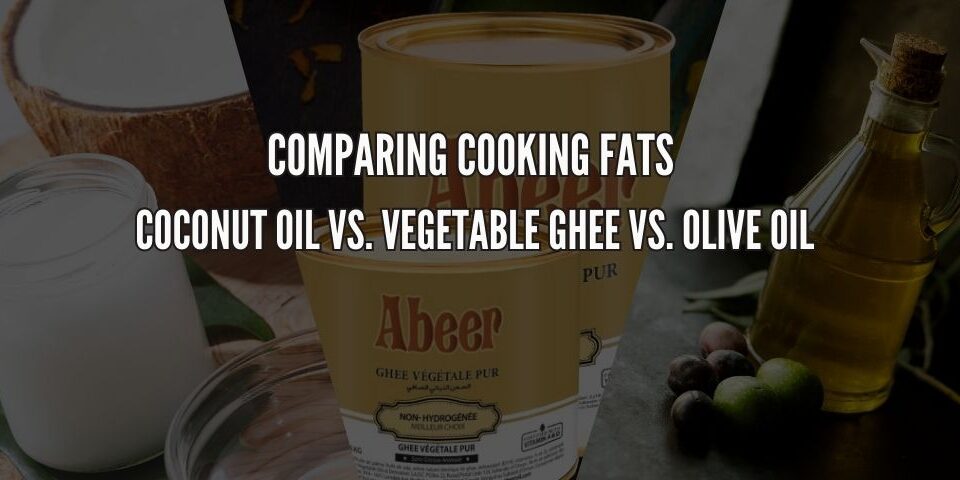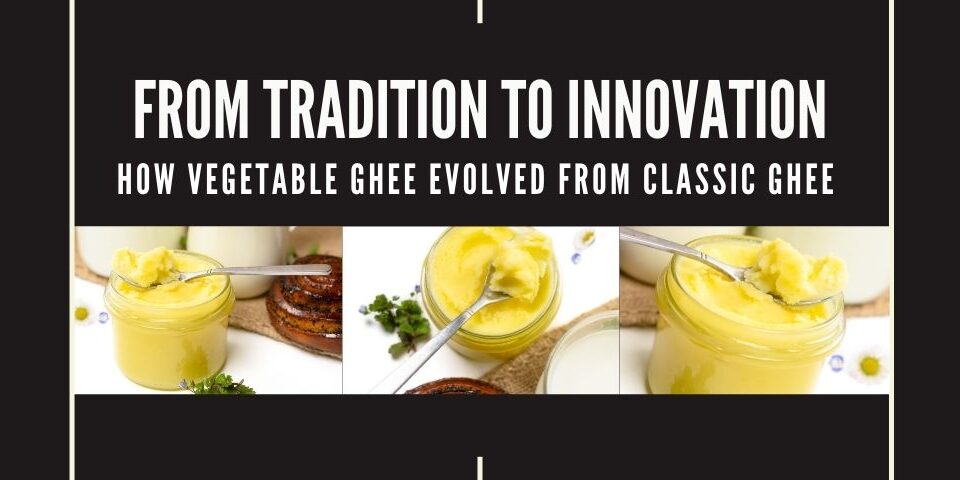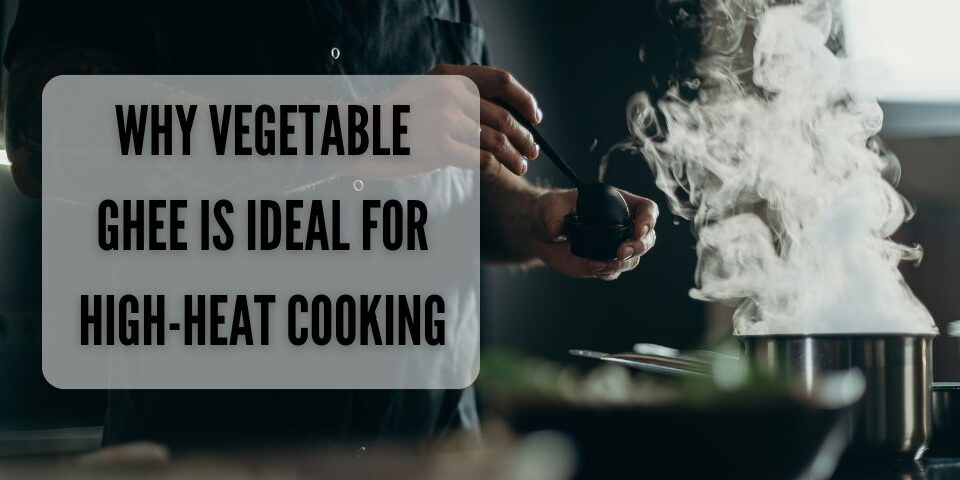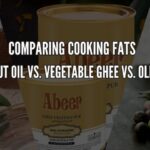
Comparing Cooking Fats: Vegetable Ghee vs. Coconut Oil vs. Olive Oil
April 17, 2025Not All Fats Are Created Equal: Understanding the Healthy Fats in Abeer Vegetable Ghee
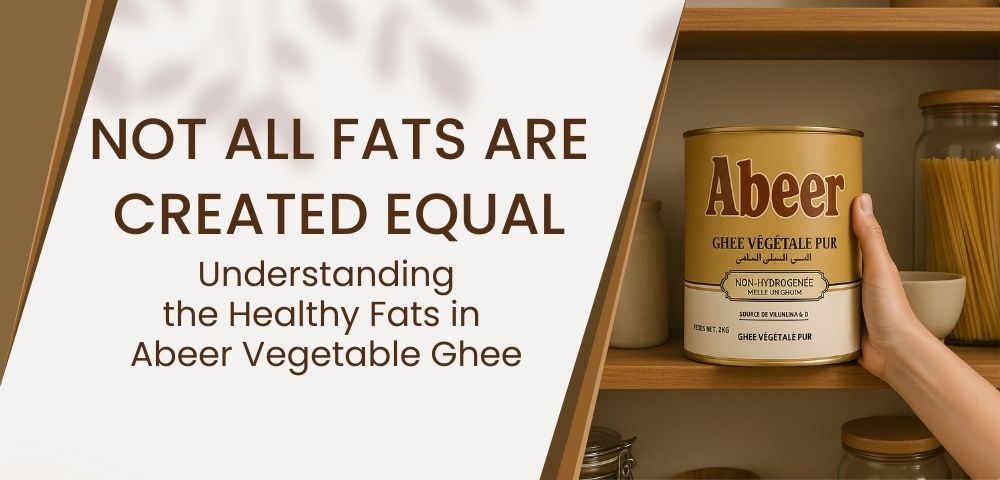
The word “fat” often gets a bad rap. For decades, we’ve been told to avoid it, leading to a lot of confusion and perhaps some not-so-tasty low-fat experiments in the kitchen. But here’s the good news: not all fats are villains! In fact, some fats are absolutely essential for our health, playing a vital role in everything from energy levels to brain function.
The key is understanding the types of fats we consume. Today, we want to shed some light on this often-misunderstood nutrient and explore the world of healthy fats in vegetable ghee, particularly what makes Abeer Vegetable Ghee a smart and delicious choice for your well-being.
Fats 101: A Quick Tour
Before we dive into Abeer Vegetable Ghee, let’s briefly cover the basics. Fats are one of the three main macronutrients (along with protein and carbohydrates) that your body needs. They help with:
- Energy: Providing a concentrated source of fuel.
- Vitamin Absorption: Helping your body absorb fat-soluble vitamins like A, D, E, and K.
- Cell Growth: Building cell membranes and protective sheaths around nerves.
- Hormone Production: Essential for making certain hormones.
In simple terms, fats can be grouped into:
- Unsaturated Fats (The “Good Guys”): These are the heart-healthy fats, including monounsaturated (found in olive oil, avocados) and polyunsaturated fats (found in nuts, seeds, fish). They can help improve blood cholesterol levels and reduce the risk of heart disease.
- Saturated Fats (The “Handle with Care” Guys): Found in animal products like meat and dairy, as well as some plant oils like coconut and palm oil. Current advice suggests consuming these in moderation as part of a balanced diet. The source and overall dietary pattern matter a lot here.
- Trans Fats (The “Definitely Avoid” Guys): These are mostly artificially created through a process called hydrogenation and are linked to inflammation and an increased risk of heart disease. Health authorities worldwide recommend avoiding them as much as possible.
The great news? Abeer Vegetable Ghee is proudly non-hydrogenated, meaning it is free from these harmful artificial trans fats.
Unpacking the Goodness: The Healthy Fats Profile of Abeer Vegetable Ghee
So, where does Abeer Vegetable Ghee fit into this picture? Our ghee is crafted from a careful selection of high-quality vegetable oils, chosen not just for their cooking properties but also for their beneficial fat profiles.
Here’s what makes the fats in Abeer Vegetable Ghee a healthier choice:
- Rich in Plant-Based Unsaturated Fats: Depending on the specific blend of vegetable oils used, Abeer Vegetable Ghee provides beneficial unsaturated fats that contribute to a healthy diet. These are the fats your body loves!
- Contains Medium-Chain Triglycerides (MCTs): Some vegetable oils, like those derived from palm kernel or coconut (which can be part of vegetable ghee blends), are good sources of MCTs. Unlike longer-chain fats, MCTs are metabolized differently. They are more rapidly absorbed by the body and quickly converted into energy, making them less likely to be stored as fat. This can be particularly beneficial for sustained energy.
- Naturally Cholesterol-Free: As a plant-based product, Abeer Vegetable Ghee is naturally 100% cholesterol-free. This is excellent news for anyone keeping an eye on their cholesterol intake for heart health.
- A Source of Essential Fatty Acids: Some vegetable oils used in ghee are sources of essential fatty acids (like linoleic acid), which the body cannot produce on its own and must obtain from food. These are vital for many bodily functions.
- Fortified with Vitamins: To add to its goodness, Abeer Vegetable Ghee is often fortified with essential vitamins like A and D, further supporting your overall health.
Why Abeer Vegetable Ghee is a Smart Fat Choice
Understanding that there are healthy fats in vegetable ghee is one thing, but why choose Abeer specifically?
- Versatility in Your Kitchen: From sautéing your morning vegetables to baking fluffy cakes or preparing traditional curries, Abeer Vegetable Ghee’s excellent cooking properties and high smoke point make it easy to incorporate these healthy fats into your daily meals.
- Perfect for Plant-Based Lifestyles: If you’re vegan, vegetarian, or simply looking to reduce your animal product consumption, Abeer offers all the culinary benefits of traditional ghee without any dairy.
- A Conscious Cooking Companion: Knowing you’re using a cooking fat that’s non-hydrogenated, trans-fat-free, and cholesterol-free allows you to cook with peace of mind.
Making Healthy Fats Part of Your Balanced Diet
While Abeer Vegetable Ghee offers healthier fat options, remember that balance and moderation are key to any healthy diet. Here are a few ideas to get you started:
- Use it to sauté or stir-fry your favorite vegetables for enhanced flavor.
- Replace butter or other oils in your baking recipes for a dairy-free, cholesterol-free alternative.
- Add a teaspoon to warm soups or dals for a touch of richness.
- Enjoy it as a spread on warm toast or flatbreads.
Choose Your Fats Wisely, Choose Abeer
Fats are not to be feared, but rather understood and chosen wisely. By opting for products like Abeer Vegetable Ghee, you’re choosing a delicious, versatile cooking medium that delivers beneficial healthy fats in vegetable ghee form, supporting your culinary adventures and your well-being.

